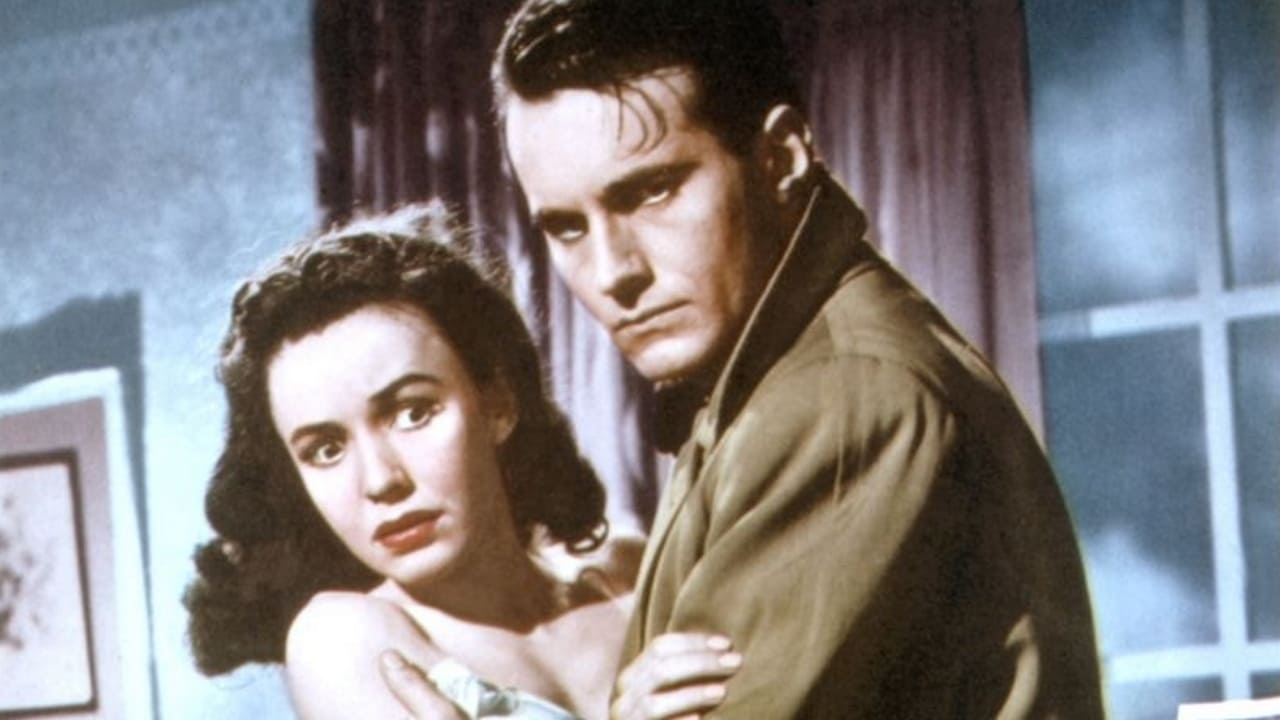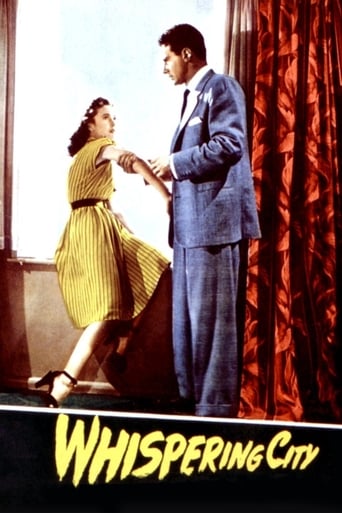

This was the last film directed by the Russian director Fedor Ozep (i.e., Fyodor Otsep), who had been the husband of Anna Sten. (He had directed THE BROTHERS KARAMAZOV in 1931, Stefan Zweig's AMOK in 1934, etc.) As a Quebec production set in Quebec City and at the spectacular Montmorency Falls, this film has a strange history, because it was first shot in French in the same year under the title of LA FORTERESSE, and then re-shot in English with a different cast. The English version is 98 minutes long and the French version 99 minutes long (perhaps because the French speak less fast?) Two French Canadian actresses carried over to the new cast, though in minor roles. In this second version, Paul Lukas does an excellent job of portraying a suave art-lover, music-lover, and cultural philanthropist who is secretly a psychopathic killer. Pert young girl reporter Mary Roberts (Marie Roberts in the French version), played by the charming Mary Anderson, who had been discovered previously by Hitchcock and appeared in LIFEBOAT, does an excellent job of beguiling us and everyone else with her girlish smile as she tries to expose Lukas as a murderer. Lukas's musical protégé of the moment is a handsome young pianist and composer played by Helmut Dantine, who is a creative but tortured soul married to a hysterical wife, who is played by Joy Lafleur. (In LA FORTERESSE, this part had been played by Mimi D'Estee, who in the English language film is given a small part of a dying woman, which, however, she brings off with style.) All of these people do a very good job, and the direction and atmosphere are excellent. The film is notable for the use of a modern piano concerto by the Canadian composer Morris C. David, and with the piano played by Neil Chotem. So classical music and orchestras figure largely in the story. Canada was not known for its feature films at this time, and Canada in American minds was then thought of as a thin strip of land separating the northern border of the United States from the Arctic Circle, populated largely by polar bears and Esquimaux. So this was an early attempt by an infant Canadian film industry to assert itself, to prove that Canadians actually existed and even had their own cities, even though it was all done with a borrowed Russian exile as a director, a Hungarian exile as the bad guy, a Viennese exile as the good guy, etc. But it works. The Canadians can and should be proud of it. I wonder what the original French language version was like, with largely home talent speaking Quebec dialect. The film has a great deal of intensity and is a genuine film noir, which proves, I suppose that whatever that mysterious substance known as 'noir' really is, it does not freeze at the higher latitudes and can survive the northern climes with its vitality intact.
... View MoreI did not expect too much, when I picked this one up on ebay for about a $ 1,50 plus a little extra for postage. The artwork on the case did appear "noirish" and looked a little better than on most of these features from the forties and fifties that belong to public domain. I already found a couple of well written positive comments here on IMDb that convinced me to give it a try. The technical quality of the only available print on DVD (from Alpha Video) is far below average, which is a pity indeed. It's that bad that it looked like copied from an ancient super 8 print as somebody else stated out. Though that was a reasonable disadvantage the movie took me in from the very start, and I went through it without having a break.Let me ask a question. Why did Alfred Hitchcock choose Mary Anderson for "Lifeboat"? Because she really could act. She is that good in "Whispering City" that I got hooked by surprise. Paul Lukas and Helmut Dantine also deliver strong performances in a story based on a solid script with some interesting twists and turns all along the way to the very end. The final climax was a bit abrupt and all too easily done, so the movie didn't quite got an ending that did suit the whole story fairly, which I think is disappointing. And though I hardly found anything far beyond belief while watching it, a few things come along much too quick in the end.Besides that, this movie is a nearly forgotten and obviously ignored gem that definitely needed to be rediscovered and completely restored like "Woman On The Run" or "Kansas City Confidential" with whom it can compete. It is not those dark and grim type of film noir like "The Killing" or "Force Of Evil" - both are in fact superior movies. But in my opinion "Whispering City" belongs without a doubt to the better half of that period and I'd recommend it to everybody, who is interested in that. "Whispering City" also proves that way back then the Canadians were hard drinkers too. Well, that might also be a fact, because its director was a Russian immigrant. Watch that movie, and remember Fyodor Otsep, because he did a fine job.
... View MoreThe early parts of this movie were terribly confusing to me. True, the print I saw was terrible. It looked like 8 millimeter. However, I hung in because of its interesting cast and indeed, it picks up: Mary Anderson was a very appealing actress. Too bad she never became a star. Helmut Dantine was very handsome and his acting is very good, too. And of course, top-billed, we have Paul Lukas. Only four years after his Osacr-winning performance in "Watch on the Rhine," here he is at Eagle-Lion. Talk about the curse of the statue! From its introduction, the music is exceptionally good. The Dantine character is a composer. He has written a piano concerto, which we hear in pieces and then in performance. (Not all of it is performed but it looks like a real orchestra really playing it.) I can't think of a better piece written for a movie except the Korngold cello concerto for the deliriously wonderful "Deception." I love that movie and I love his music. That piece, stripped of the name of Claude Rains's composer, Alexander Hollenius, is now performed and often recorded by major orchestras, as the Korngold Cello Concerto.Once this movie finds its footing, it's very intriguing. But till then, it's really pretty bad.
... View MoreThis is a very good Canadian film. On the face of it, one would expect a strictly routine lady reporter investigating some unusual doings, but it's much more than that. I won't spoil the intricate plot, but it does take concentration to follow. Paul Lukas is, of course, his usual magnificent self The camera work is especially good and the backdrop of a city that most Americans didn't see very much of on the screen is quite good. The classical tone set by Helmut Dantine's character's composition, The Quebec Concerto, is very impressive.One realizes who the villain is from his first appearance and yet the movie achieves not quite Hitchcockian suspense by the end. This is indeed an unjustly overlooked film.
... View More